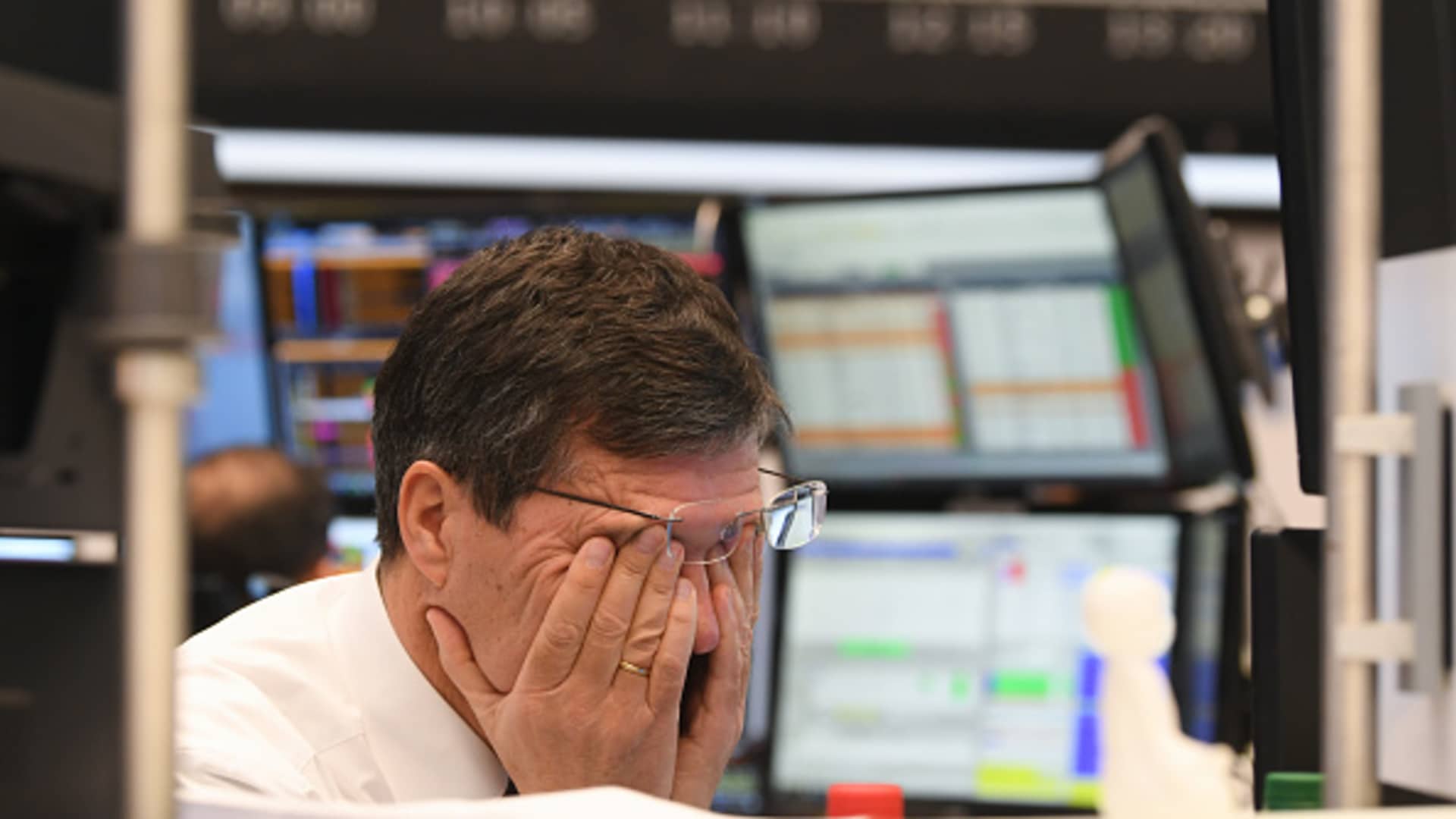
The months-long slide for the S&P 500 index has officially thrown stocks far enough off of their all-time highs to be considered a bear market.
Since the beginning of 2022, the S&P 500 index is down nearly 21% as of Monday afternoon, with companies like Amazon and Google parent Alphabet leading the way with their 39% and 27% respective drops. Elon Musk’s Tesla has also lost 45% of its market value since January — shaving more than $500 billion off of its market cap.
The problem has been exacerbated by inflation and global uncertainty, with experts predicting that a recession could be around the corner.
Here’s what you need to know about bear markets, and what you should do when you find yourself in one.
What exactly is a bear market?
Put simply, bear market is the term used to describe when the equity markets are down 20% or more from their most recent all-time high. In this case, the S&P 500 index closed Monday at 3,749.91, with its previous high being 4,818.62.
Since World War II, there have been 14 bear markets that have pulled the S&P down an average of 30%, according to CNBC. Each bear market is unique, says Laura Veldkamp, a finance and economics professor at Columbia University, and the current one has a slew of causes.
Wherever there’s a lot of guessing and a lot of uncertainty, that means people’s beliefs can move around a lot. And with those beliefs go stock prices.
Laura Veldkamp
Professor, Columbia University
Two of those causes are interest rates being raised to fight runaway inflation and pandemic-related uncertainty fueling the stock slide as investors try to figure out the long-term repercussions that Covid-19 will have on the global economy, Veldkamp says.
“The truth is, nobody knows what will be the long-term consequences of having [shut down parts of the economy for long periods of time], because we don’t have any experience having done it before,” she tells CNBC Make It. “Wherever there’s a lot of guessing and a lot of uncertainty, that means people’s beliefs can move around a lot. And with those beliefs go stock prices.”
What should investors do during a bear market?
For many investors, seeing their investment portfolios turn red can be alarming and make them want to pull their money out to avoid further losses. But this is the wrong strategy, Veldkamp says.
“Do not sell right now unless you absolutely need that money,” she says. “If you’re a young person who’s putting some stocks in a 401(k) for retirement, don’t worry about this. Just keep doing what you’re doing.”
Indeed, bear markets “are historically fantastic opportunities to build wealth for longer-term investors,” says Matt Stucky, senior portfolio manager at Northwestern Mutual Wealth Management.
“An investor that starts off methodically putting money into a 401(k) is going to have a bigger balance 20 or 30 years from now if earlier on during their investing career they were able to take advantage of bear markets versus having to buy at all-time highs all the time,” he says.
Still, Stucky recommends that investors don’t rush to invest all their money. They should also focus on growing their savings. The important thing is for investors to “make sure that you can handle these swings” when buying stocks, because there will be more volatility to come.
“Just from a sleeping-at-night situation, you don’t want your portfolio to create anxiety for you that affects your mental health,” he says.
How long do bear markets last?
The bright side is that the market has bounced back from every single bear market, Veldkamp says.
“Have faith that it’s going to come back in due course well before you retire,” she says. “Usually, it takes a couple of years to recover some losses like this.”
The average bear market lasts 359 days, and Stucky adds that it can take a full 38 months to go from the bottom of a bear market to a new all-time high. He says that getting through an extended stretch like that can be stressful, and for some investors, it might be helpful to get out of the habit of checking their balance frequently.
“There’s no reason you need to introduce more anxiety into your life by looking at your balance multiple times a day or every day or every other day,” Stucky says. “You could check it once a month and be fine.”
Sign up now: Get smarter about your money and career with our weekly newsletter
Don’t miss: Don’t wait any longer to book your summer travel, says Scott’s Cheap Flights founder





